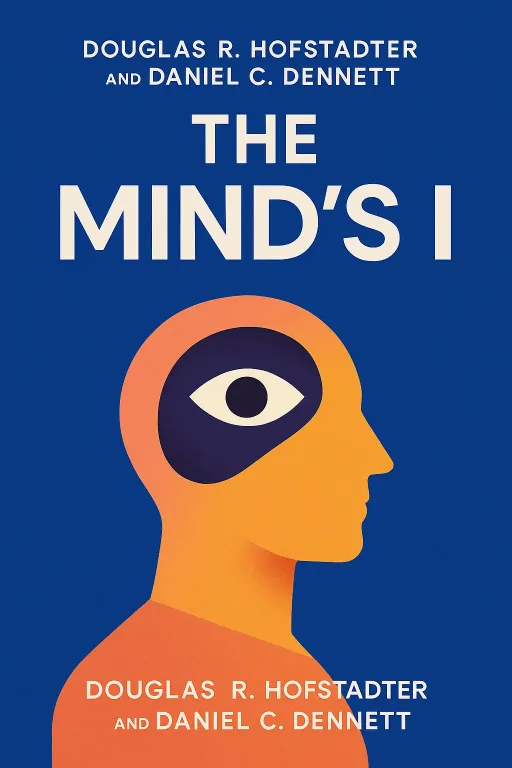
The Mind's I
Douglas R. Hofstadter
This provocative collection of essays and thought experiments, edited by two renowned thinkers, delves into the profound questions of consciousness, self, and identity. Through imaginative scenarios like the 'Teleclone' and explorations of cognitive science, it challenges readers to rethink their understanding of what it means to be 'I,' aiming to disturb, befuddle, and make the strange obvious. It's an intellectual journey into the nature of mind, soul, and the boundaries of human perception.
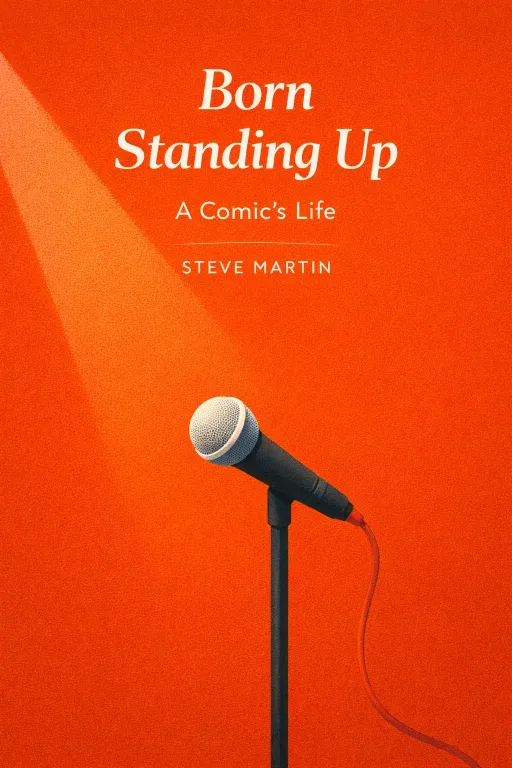
Born Standing Up
Steve Martin
"Born Standing Up: A Comic's Life" is Steve Martin's reflective memoir, chronicling his eighteen-year journey through the world of stand-up comedy. The book delves into the intense pressure, constant self-evaluation, and rare moments of joy that defined his early career. From his initial performances, Martin's pursuit of originality led him to unexpected fame and a unique comedic style. Readers will trace Martin's evolution from his early days performing a variety act in a San Francisco club to his time at Disneyland and Knott's Berry Farm, where he honed his skills. The memoir explores his early exposure to comedy through radio and television, his experiences writing for "The Smothers Brothers Comedy Hour," and his eventual commitment to stand-up. The book also examines the development of his unique, absurdist comedic style, free from traditional punchlines, and the challenges and triumphs of life on the road as he refined his act and found his comedic voice.
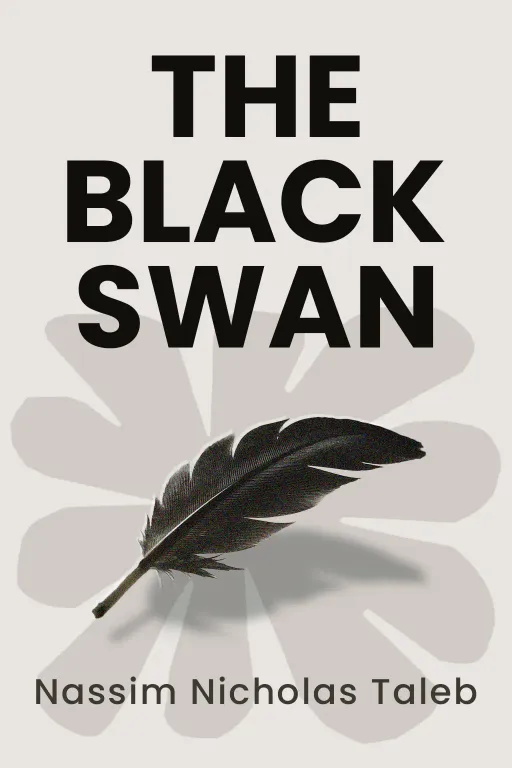
The Black Swan
Nassim Nicholas Taleb
"The Black Swan" is a ferocious attack on our understanding of the world, written by former options trader and risk analyst Nassim Nicholas Taleb. Taleb argues that history is not driven by predictable trends, but by rare, high-impact events that are impossible to predict. He calls these events "Black Swans." A Black Swan has three characteristics: it is an outlier that lies outside the realm of regular expectations, it carries an extreme impact, and human nature causes us to concoct explanations for its occurrence after the fact. This retrospective explanation makes the event seem explainable and predictable when it was not. Taleb mocks the experts and economists who use standard bell-curve statistics to model the world. He argues that while the bell curve applies to physical traits like height in the safe world of Mediocristan, it is useless for social and financial matters in the volatile world of Extremistan. In this latter world, a single observation can render thousands of days of data irrelevant. Taleb illustrates this with the parable of the Turkey. For 1,000 days, the turkey is fed by the farmer, and every day its statistical confidence grows that the farmer loves it. On day 1,001, the day of Thanksgiving, something unpredictable happens that changes everything. The book is a plea to stop trying to predict the specific future and instead build robustness against negative Black Swans while positioning ourselves to benefit from positive ones.
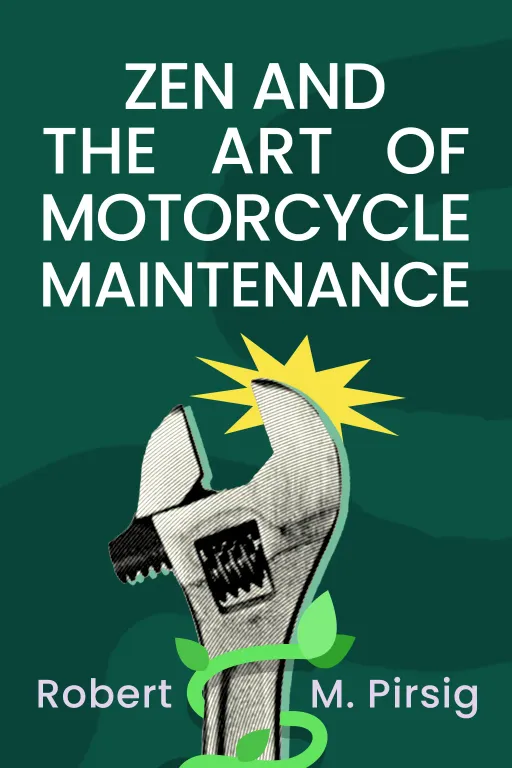
Zen and the Art of Motorcycle Maintenance
Robert M. Pirsig
"Zen and the Art of Motorcycle Maintenance" is a modern philosophical classic that defies easy categorization. Written by Robert Pirsig, the book is framed as a fictionalized autobiography recounting a summer motorcycle trip across the American Northwest taken by the narrator and his young son, Chris. The physical journey serves as a backdrop for a series of philosophical talks, which Pirsig calls "Chautauquas." In these reflections, the narrator explores a fundamental rift in modern life: the conflict between the Romantic view of the world—which appreciates beauty and surface aesthetics—and the Classical view, which seeks to understand the underlying mechanics and form. Pirsig uses the motorcycle as the central metaphor. To a romantic, a broken motorcycle is a frustrating mystery; to a classicist, it is a rational puzzle waiting to be solved. The narrator attempts to reconcile these two worldviews through his theory of "Quality," a concept that transcends both mind and matter. The book is also a psychological thriller, as the narrator is slowly revealed to be haunted by Phaedrus, his former brilliant but unstable self who was driven insane by his obsessive pursuit of this very truth.

In Praise of Shadows
Jun'ichirō Tanizaki
"In Praise of Shadows" is a non-fiction exploration of Japanese aesthetics by Jun'ichirō Tanizaki. The book delves into the cultural significance of shadows and darkness in traditional Japanese architecture, art, and daily life. Tanizaki contrasts this appreciation for subtlety and dimness with the Western preference for brightness and sharp illumination, examining the profound cultural implications of these differing aesthetic values. Through Tanizaki's core essay, readers will gain insight into the beauty found in the subdued and the imperfect, as opposed to the Western emphasis on the bright and new. The book includes a foreword by Charles Moore, which discusses the human need to connect with places and how understanding the contrast between light and shadow can offer insights into different cultures. An afterword by Thomas J. Harper contextualizes Tanizaki's essay within his broader literary career and the traditions of Japanese literature. This edition also includes information about the translators, Thomas J. Harper and Edward G. Seidensticker, both experts in Japanese literature. "In Praise of Shadows" offers a unique perspective on aesthetics and cultural values, inviting readers to reconsider their own perceptions of beauty and design.
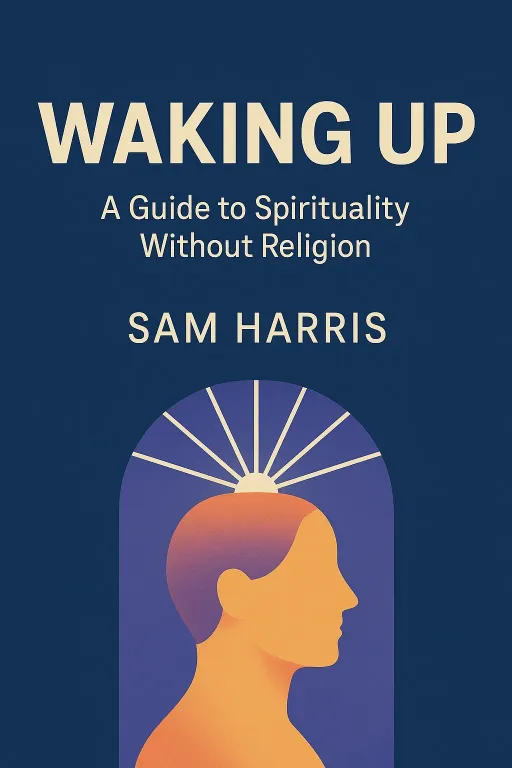
Waking Up
Sam Harris
"Waking Up" is a bridge between two seemingly incompatible worlds: rigorous scientific skepticism and the profound experiences of spiritual life. Written by neuroscientist and philosopher Sam Harris—famously known as one of the "Four Horsemen" of New Atheism—this book argues that there is more to understanding reality than just grasping the physical laws of the universe, but that we do not need religion to access it. Harris contends that spirituality is a matter of consciousness, not creed. His central thesis challenges the feeling most of us have of being a "self"—an ego or passenger residing inside our heads, looking out at the world. Drawing on both neuroscience and the contemplative traditions of the East (specifically Dzogchen and Vipassana), he argues that this "self" is an illusion, and the source of much of our psychological suffering. The book serves as a rational guide to meditation, framing it not as a relaxation technique, but as a tool for empirical investigation into the nature of one's own mind. "Waking Up" invites secular readers to reclaim the wisdom of contemplative practice, proving that it is possible to be spiritual without being religious, and to find a deep sense of peace by simply waking up to the reality of the present moment.
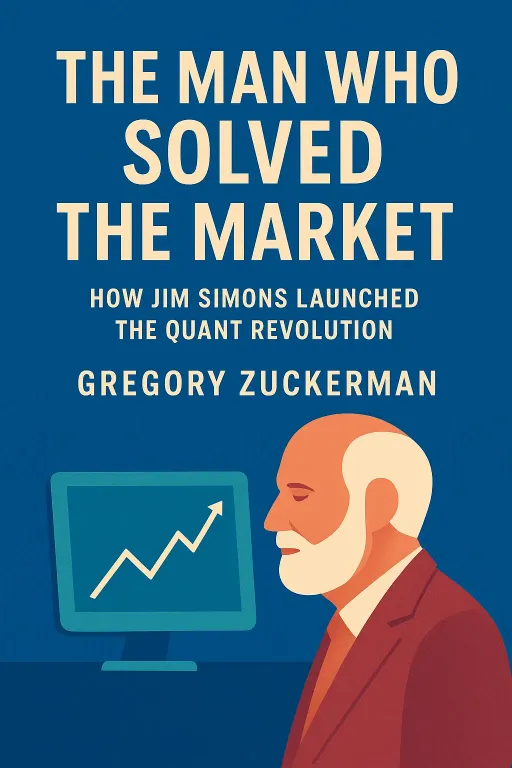
The Man Who Solved the Market
Gregory Zuckerman
"The Man Who Solved the Market" is the incredible, untold story of Jim Simons, a mathematician who conquered Wall Street not by understanding finance, but by cracking the code of the market. Written by journalist Gregory Zuckerman, the book chronicles the rise of Renaissance Technologies, the secretive hedge fund that pioneered the era of algorithmic trading. Simons, a former code-breaker and geometry professor, rejected the traditional Wall Street model of hiring economists and MBAs. Instead, he hired physicists, astronomers, and computer scientists. They viewed the market not as a system of businesses, but as a chaotic mass of data full of hidden, non-random patterns. The result was the Medallion Fund, which generated average annual returns of 66% before fees for decades—shattering the records of Warren Buffett and George Soros. The Man Who Solved the Market is a gripping narrative about the triumph of data over intuition, revealing how a team of eccentric scientists built a money-printing machine that changed the financial world forever.
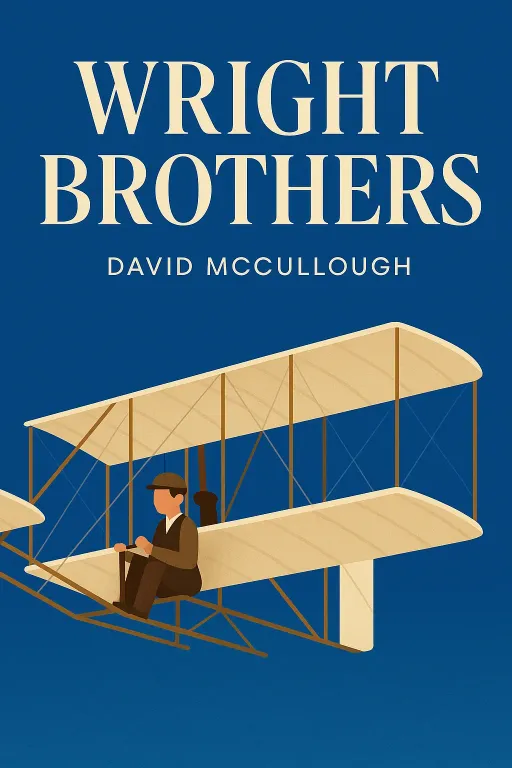
Wright Brothers
David McCullough
The story of Wilbur and Orville Wright, two brothers from Ohio who dared to dream of flying and, through perseverance and ingenuity, achieved the impossible. This biography delves into their lives, their family, and the challenges they overcame to invent the airplane and change the world forever.